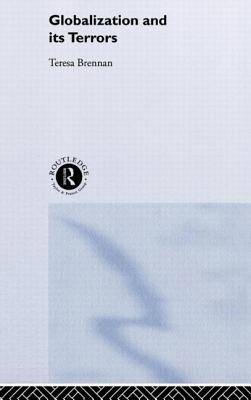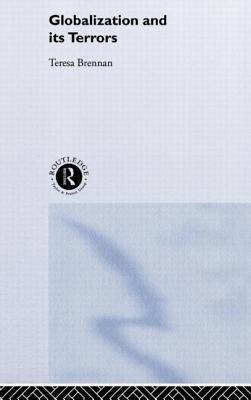
Bedankt voor het vertrouwen het afgelopen jaar! Om jou te bedanken bieden we GRATIS verzending (in België) aan op alles gedurende de hele maand januari.
- Afhalen na 1 uur in een winkel met voorraad
- In januari gratis thuislevering in België
- Ruim aanbod met 7 miljoen producten
Bedankt voor het vertrouwen het afgelopen jaar! Om jou te bedanken bieden we GRATIS verzending (in België) aan op alles gedurende de hele maand januari.
- Afhalen na 1 uur in een winkel met voorraad
- In januari gratis thuislevering in België
- Ruim aanbod met 7 miljoen producten
Zoeken
Omschrijving
It has long been realised that the poorer countries of the south have paid for the unstoppable onward rush of globalisation in the exploitation of their natural and human resources. Recent events have made it clear that there may be a price to be paid in the west as well. In this elegant, lucidly argued account, Teresa Brennan argues that the evidence already exists that globalisation has for years been harming not just the poor of the third world but also its alleged beneficiaries in the affluent west. She shows how the speeding-up of contemporary capitalism, in which space is substituted for time, means that neither then environment nor the people who live in it are given the opportunity to regenerate and how this leads directly to pollution-induced, immune-deficient and stress-related disease. In a final chapter she suggests some alternative ways forward through a return to regionally based production and an emphasis on local economies.
Specificaties
Betrokkenen
- Auteur(s):
- Uitgeverij:
Inhoud
- Aantal bladzijden:
- 264
- Taal:
- Engels
Eigenschappen
- Productcode (EAN):
- 9780415285223
- Verschijningsdatum:
- 19/12/2002
- Uitvoering:
- Hardcover
- Formaat:
- Genaaid
- Afmetingen:
- 154 mm x 246 mm
- Gewicht:
- 521 g

Alleen bij Standaard Boekhandel
+ 854 punten op je klantenkaart van Standaard Boekhandel
Beoordelingen
We publiceren alleen reviews die voldoen aan de voorwaarden voor reviews. Bekijk onze voorwaarden voor reviews.









